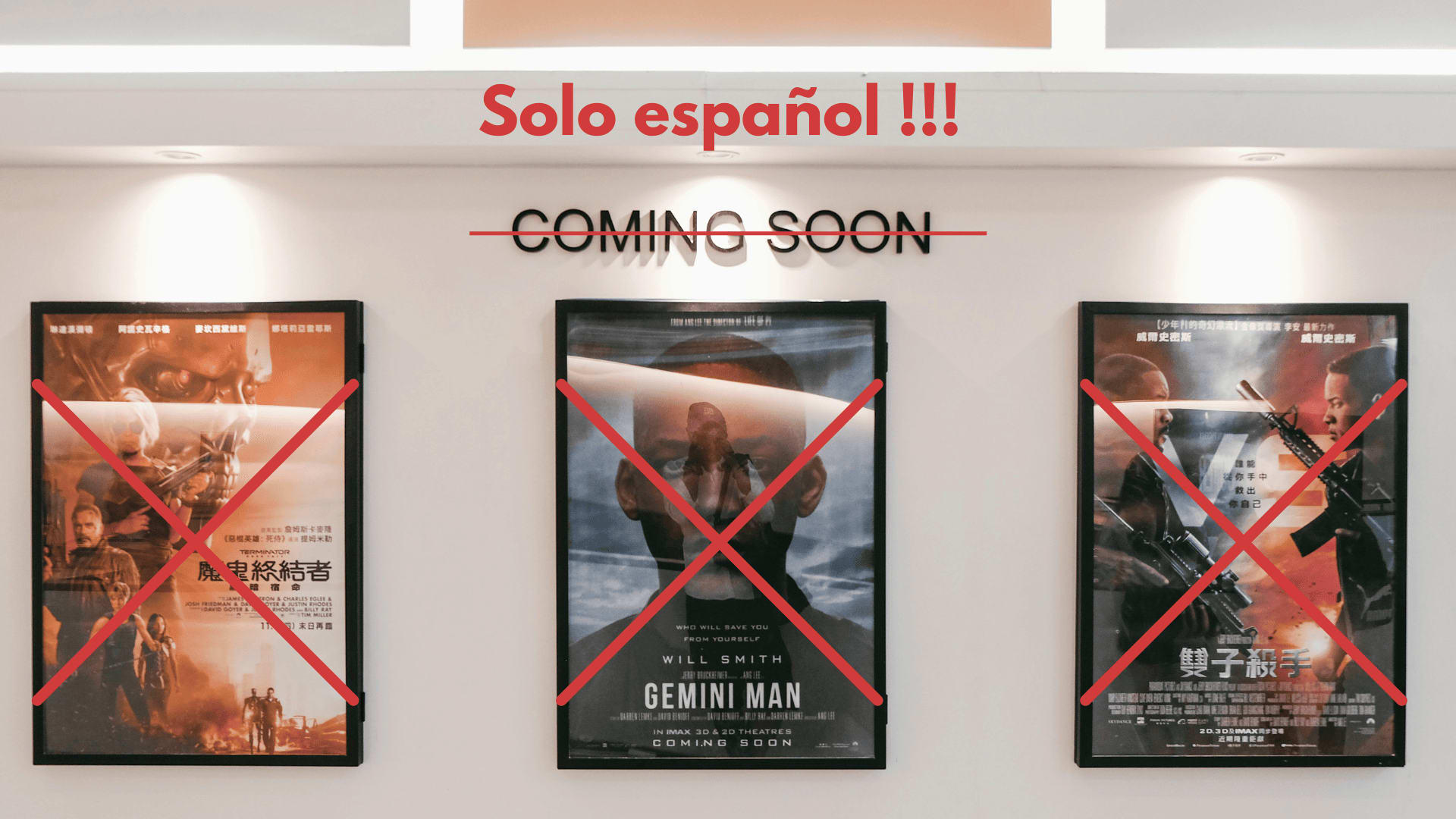Speak English in Spain?? Here Is the Reason Why We Struggle
September 5, 2022
Win a FREE Trip to Spain!
Exciting Announcement! For the first time, we're thrilled to offer exclusive trips to the heart of Spain - an experience like no other. This isn't your typical tourist journey; it's a unique opportunity to immerse yourself in authentic Spanish culture, alongside real locals and our passionate team.
But there's more! Simply by requesting information about this amazing trip, you'll be entered into a special draw to win a Fully Paid Trip to Spain for Two. And that's not all - everyone who inquires will receive an exclusive bonus gift, valued at $500, available only now.
Ready to Discover the Real Spain?Click Here ↑ to Request Information & Enter the Draw!
Let me be clear… we don’t speak like the Puss in Boots from Shrek. At least not ALL of us.
I mean it is true that speaking English is hard on most Spanish fellows. A language company, EF, did research on the level of English in countries around the world and we came out almost last in Europe. And yes… Italy is ahead of Spain too.
But… there is a real, deep reason why we struggle with English… and it’s not our tendency to dub all audiovisual content. What I am about to tell you will clear this subject once and for all. Plus, I will mention things that will turn out helpful if you want to travel to Spain.
Get ready to understand the reason behind a country’s battle with a language and open your notes! You might want to write down some of the tips I’ll mention.
Table of Contents ▼ ▶
The Big Reason Why We Struggle with English
There could be a lot of reasons for why Spanish people struggle with English. But, I think there is an obvious ONE that most people ignore. Before we dive deeper into this…do you know how babies learn a language?
I’m going to get a bit academic with this but…(read me with an academic tone) according to the Linguistic Society of America children acquire language through interaction (cut the academic tone). Okay, so what does this mean? It means that a child learns a language from conversations, babies are surrounded by constant interaction with adults and other children. In a nutshell, they learn by experiencing and listening to the world around them.
When babies are learning, we tend to encourage their communication and correct them with kindness. They acquire the correct way of speaking through trial and error. Now…you might be thinking “how on earth is this related to Spanish people speaking English?”.
In Spain, people learn English for almost 12 years between school to high school. And what is the result?? They get out to the world intimidated to speak English. What went wrong??? (serious voice again for a serious matter) An English teacher from Vigo, Irene Alonso, argues that the problem relies on the whole teaching method.
Spanish people struggle with English because the teaching method has the wrong focus.
Instead of encouraging students to experience English, teachers focus the subject on pure theory. How will babies understand grammar and correct spelling if you don’t speak with them? That is the problem in Spain. Students struggle with English because they are learning theory with no practice.
According to Alonso, some teachers get into class saying “Bueno…hoy aprenderemos el verbo To Be”. That is not a nice way to motivate your students. English teachers should express themselves in English, that is the best way for kids to learn. And that is exactly the problem in Spain. They teach us grammar and structure without motivating real practice.
Okay. I apologize if I got a bit passionate about this. But it’s the truth, the base of the problem is that the teaching method is focused on structure instead of communication.
Secondary Reasons Why Spanish Struggle with English

Some say that another reason for our general bad English is lack of interest.
You might be wondering what do I mean by no real interest. Well…exactly that. For most Spanish people, there is no real interest (which is not the same as need, we will look into that later) to learn English because they can have everything in their mother language.
With “everything” I am exclusively talking about audiosvisual content and media, which is a very important tool when it comes to learning languages. In case you didn’t know this the dubbing industry in Spain is pretty powerful. Actually sooo powerful, that most of the time it’s rare to find movies in their original version.
But…how did this happen? Did they suddenly decide to reject English? Well, no. Guess who decided it?
Franco.
I am really enjoying using a serious voice in your head, here it goes again (change to serious tone). In 1941, following Mussolini’s lead, Franco set out a law titled “Ley de la Defensa del Idioma” or Language Defense Law. With the new regulations it was PROHIBITED to show movies in any other language but Spanish.
The objective of the law was to align the content with Franco’s ideology. Nothing slipped pass him. So, if there was any dialogue that suggested something slightly different it was immediately changed.
Going back to experiencing English to be able to learn it, Spanish people simply couldn’t. Actually, schools added the language to their study plan in 1972, just a year before Franco left power.
So, 30 years of mandatory dubbing created a strong industry that remains until today.
Again, having international movies easily translated into Spanish creates no real interest in the language.
Other History Rooted Reasons
Alright people we are getting there. Now you know the primary and secondary reasons why Spanish people struggle with English. Let’s go for the third one. I think you will be surprised.
Two words: Colonization and Economy.
Don’t be scared, we are not going back to the 15 century nor giving you an Econ class. But we are going to give this a bit of thought. Let’s think it this way. Spain was a superpower, it colonized most of Central and South America plus some countries in other continents like the Phillippines.
Let’s put this in simple words: Spanish is a global tongue. It’s is the 2nd most spoken language after Mandarin and before English. Yes, before English! So, maybe in a Spaniard mindset, there is really no need to learn English. Why would they do it if they can understand people from more than 20 countries around the world??
What about the Economy?
A journalist from the newspaper La Voz de America, Graham Keeley, argues that compared to other European countries Spain has a good domestic market. Compared to the Netherlands or Greece, Spain is capable to produce a lot of resources and has less need to negotiate in English.
These other reasons for the Spaniards’ broken relationship with English could have worked as an obstacle to developing a need to use the language.
Tips for Visiting

Facts are facts. Spanish people struggle to speak English. Fact. Around 45% of Spanish people don’t speak English. Fact. Historical characters contributed to this language obstacle. Fact. That they can communicate with MILLIONS of people in Spanish. Fact. That domestic market benefits the little use of English. Fact. But, and stay with me for this, what is not a fact?
I am glad you asked. That we are not able to communicate with English speakers. That is not a fact. How? Well, we are very friendly people and we will do whatever we can to help you. This is true. It is so true we wrote about our friendliness here. We will help you feel comfortable even if that takes combining our broken English with a kind of sign/hand language.
Here are some things you should know about speaking English in Spain:
- Don’t be afraid to visit! Technology is our friend and we will find ways to get the message across language barriers. If you visit, come with a digital or physical dictionary in hand in case we struggle to give you the right answer.
- In the big cities is easier to find English speakers. Places like Madrid, Barcelona, Valencia or Ibiza receive a huge amount of tourists every day. The people there have become used to interacting with international people. There will be no problem if you visit not knowing any Spanish words.
- There are key phrases that will get you through the day. For example, always enter a restaurant or a store with a kind “¡Hola!” (hello!). Get to know the polite words such as “¡Muchas gracias!” (thank you!) and “Disculpa” (Excuse me) if you want to approach anyone.
- If you are planning to visit small cities, write down important things such as addresses in Spanish. Also, download a language app that will help you get used to listening to the language.
Here is a video with the most relevant phrases you need to know when traveling. Pay attention to the pronunciation! We have a strong accent and sometimes is a bit difficult to understand.
Alright I think we have covered the main reasons for why we struggle with English. Did you know that some Spanish people mock those who have a perfect accent? No? Well, now you do. Of course, they don’t do it with native speakers. So you’ll be fine. But I mention this for you to understand the level of controversy some Spanish people have with speaking English.
Knowing our relationship with Shaekpear’s language gives you an important introduction to our culture. We are very proud to be Spanish and sometimes it comes in the way of our opportunities. I know… a little dramatic but true.
Here is the important thing to take from this: not all of us speak like Puss in Boots and tnow you know all the possible reason for this communication deficency.











